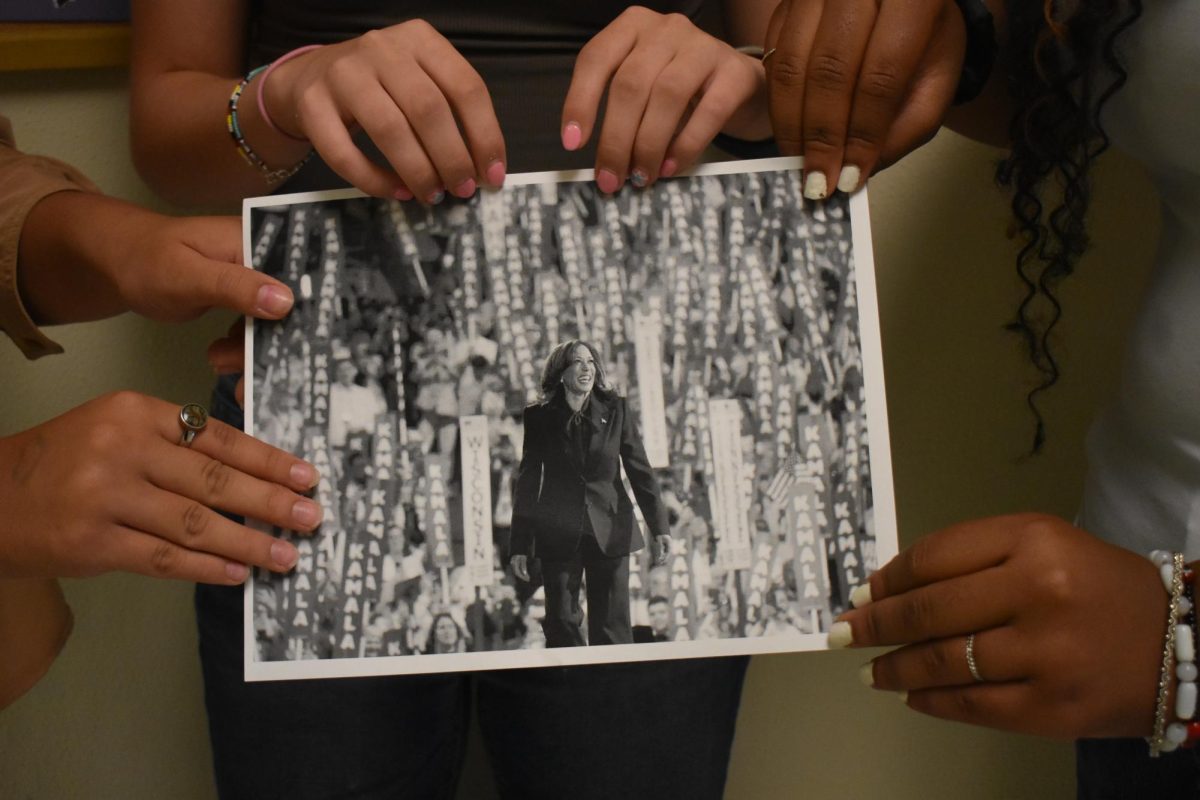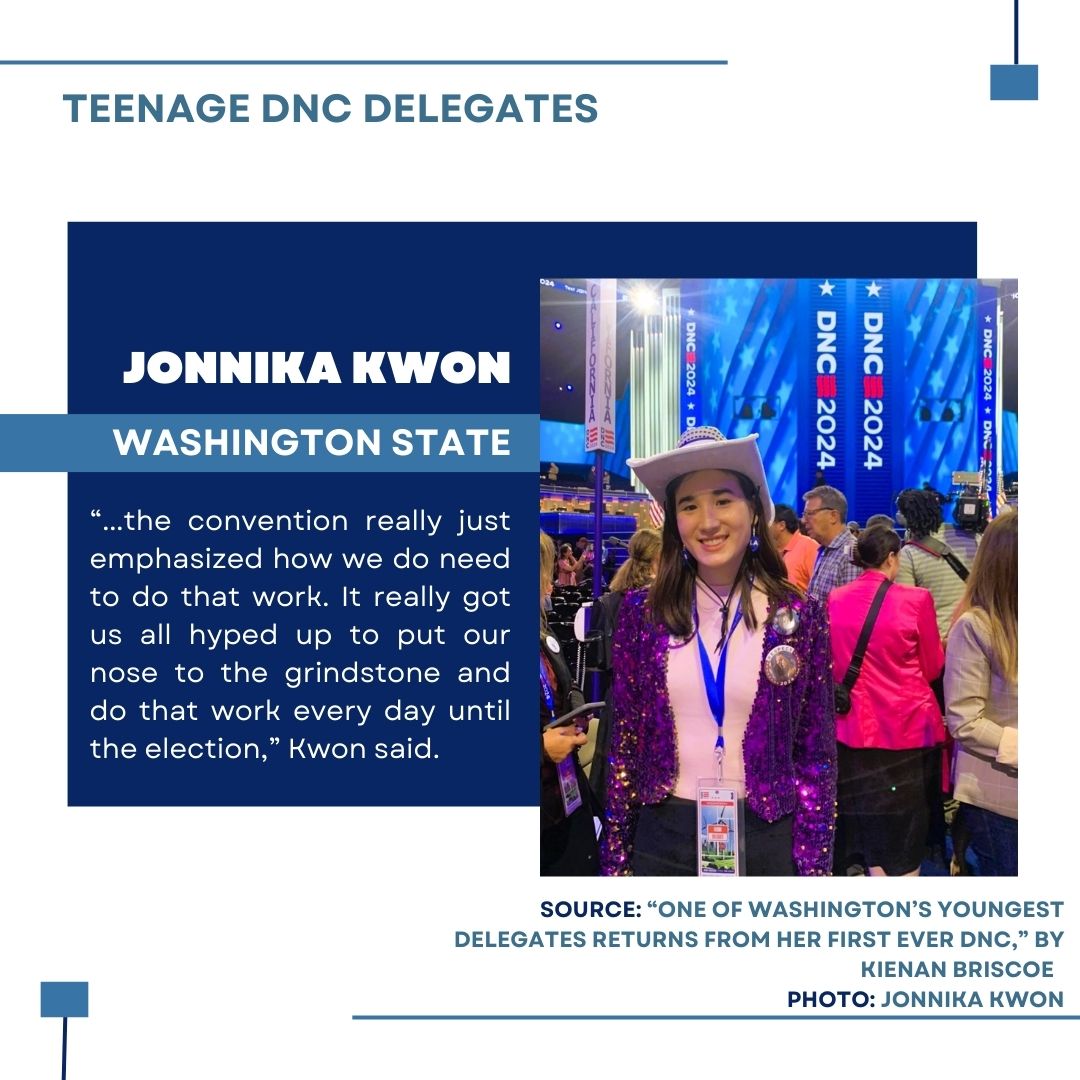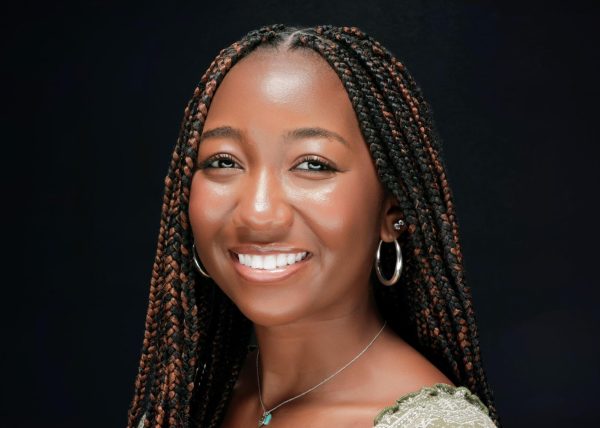Since the humid summer day that Vice President Kamala Harris announced her candidacy for the highest office in the United States of America July 21, citizens from all demographics have marveled at her legacy. Between her past as the District Attorney for The Golden State of California, to her future plans to help stimulate family businesses, Harris represents the payoff that occurs when one works diligently for their American Dream. In the wake of her whirlwind campaign against former President Donald J. Trump, Harris, alongside the rest of the Democratic party, has tapped into an emerging class of citizens who itch for a chance to cement their mark in history: teenagers. Although only those over the age of 18 possess the legal right to vote every fourth November, the underage citizens of America hold a significant amount of influence. From social media memes to CapCut edits, young Americans have increased their political involvement in light of Harris’ historic run—and her party has noticed. From the Democratic National Convention (DNC) to social media maneuvering, the Young Democrats of America stand as the demographic to watch as November approaches.
Opposition may believe that because the majority of teens can not cast a vote, their stances on politics hold less significance than their older counterparts. This sentiment resides in several teens as well due to a lack of political efficacy. By not believing that their political actions contribute to the outcomes of elections or public opinions, teens may easily become discouraged from action. Since teenagers can not legally partake in democratic actions, their political efficacy decreases, and may ultimately result in their lack of interest in politics in a time when the field relies on their perspectives. There lies one fatal flaw to this perspective, however—young people now own a higher degree of autonomy than ever before in regard to their freedoms of press and speech. Additionally, for every teen who feels they do not have the authority to speak their mind, several young activists and advocates seek to inspire them.
Since the 2020 Presidential election, young people have politically mobilized in droves to project their perspectives into the minds of Americans. Through social media apps such as TikTok and Instagram, young people took over search bars and For You Pages (FYP) with their stances on the cruciality of voting in the 2024 race for those who could. This organizing thoroughly paid off—according to the Center for Information and Research on Civic Learning and Engagement, 46% of 18 to 24-year-olds cast a ballot that year, and 59% of those votes landed with the Democratic party.
After riding the high of an 11-point increase in voting participation for the demographic in 2020, young people still continue to speak out about the importance of heading to the polls in November 2024. Due to the fact that voter participation in teens can begin as early as 16 years old in some states through registration, the pathway to the ballot boxes stands clearer for youth. In recent years, youth-led organizations such as the Youth Political Activism Coalition, Rhizome and The PEY Center have encouraged high school and college-aged students to become involved in civic engagement with their communities and teach teens to organize and educate while they can not vote themselves. Through voter drives, phone banking and canvassing, young people continue to push the envelope for their perspectives in civic work.
Although teens from both ends of the political spectrum have used their voices in politics in one way or another, the Democratic party has incorporated a significant amount of youth outlooks in their events and campaign strategies. Through the entertainingly poignant DNC, for example, those ideals shined through.
Part One: The Young Delegates of the DNC
The DNC that took place in August served to commemorate the historic race for the White House presented by the Harris-Walz ticket. Delegates from all over the U.S. came out to showcase their support for the candidates and convince unsure voters to potentially vote blue this election. The Chicago event played host to a plethora of iconic speakers and celebrities; From Oprah Winfrey to Barack Obama, a diverse array of Americans showed their support for the Vice President and her campaign. Among the noteworthy attendees, several teenagers joined the lineup of participants at the convention. Young delegates from states such as South Carolina, Washington State and Tennessee represented the ideals of youth in America through their presence at the convention and shined a light on the voices of young people in their home states.
“Through the clips I saw of the DNC, I felt inspired. I think in this election it’s really important to get the younger generations active and participating. At the DNC they obviously emphasized voting for Harris, but they also just empowered people to participate in politics. Unfortunately, I can’t vote in this election, but I want to do what I can to help others feel inspired to vote. I think it’s important that people be educated on their country’s government and current political state so that when they participate, they are informed. I think this will give us the best government we can have,” senior Ashley Williams said.
Part Two: Savvy social media use
Social media has also served as a pivotal tool for the Democratic Party in terms of ascertaining youth participation. TikTok accounts such as @kamalahq and @uncyoungdemocrats utilize trending sounds and dances on the app to pop up on the FYPs of young people that may appeal to them. By also featuring common slang used by teens, social media can serve as a bridge between different generations. Young people may also take to social media to show their support for certain candidates, and in turn, several politicians repost their videos to further circulate them online and encourage youths to keep posting. Increased engagement also increases the amount of times people may see politically-based TikToks due to the algorithms the app provides, and prolongs the ways in which people can become educated on the Internet.
Overall, young people have shown that they know the impact of their voices on influencing policy—and so does the Democratic party. By incorporating teen voices in media and events, young people, without even casting a ballot, can change the course of political efficacy in America.
“I think it’s really important that politicians learn from the youth because it’s the youth that will be living in the system in the years to come. The issues they are discussing, such as the environmental crisis and income disparities, will directly affect their livelihood with their education, jobs, and health. Politicians need to think about the future instead of the next election. While it’s often stated that the youth have ‘progressive mindsets,’ it’s important to notice that the youth perspective cares about a variety of people. The most modern agenda is making everyone feel safe and happy—simply that,” Williams said.












